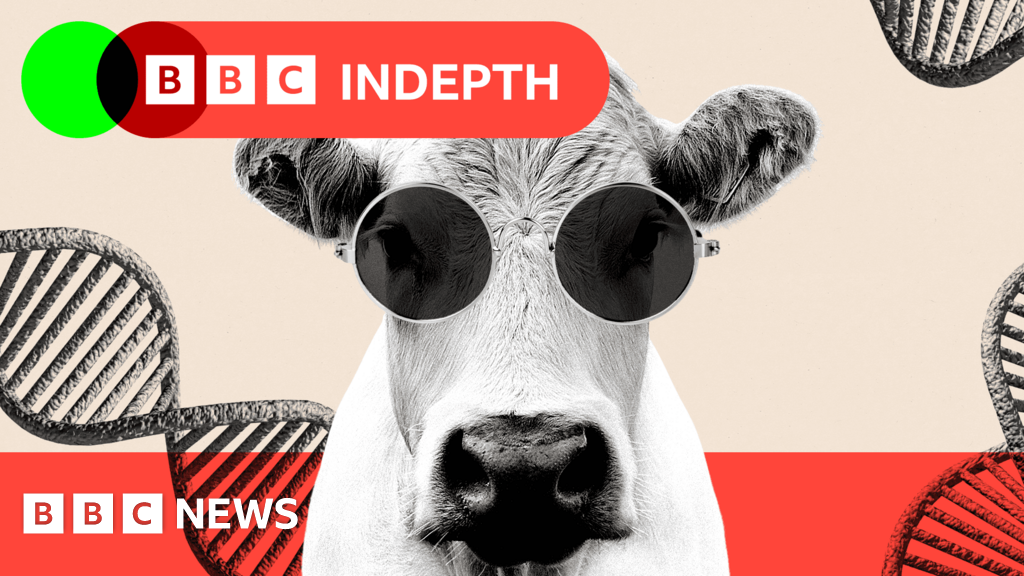BBCThere is a long history of genetic engineering, dating back to our Stone Age ancestors who cross-bred plants and animals to increase food production. Today, modern genetics allows scientists to make precise changes to DNA in a lab, leading to new, more productive crops and animals.
In Japan, gene-edited foods like calming tomatoes and faster-growing puffer fish are already on shelves. In the US, companies are developing heat-resistant cattle and seedless blackberries.
Supporters believe gene editing can reduce animal suffering, lower antibiotic use, and combat climate change by reducing methane emissions. However, opponents question its safety and impact on animal welfare.
In the UK, a law allowing gene-edited food sales has been paused, causing concern among scientists who fear falling behind other countries. The EU has strict regulations on genetically modified crops, which also cover gene-edited crops.
Despite differing opinions, there is some consensus on the potential benefits of gene editing, such as developing disease-resistant animals like PRRS-resistant pigs. However, concerns remain about its impact on animal welfare and intensification of livestock production.

